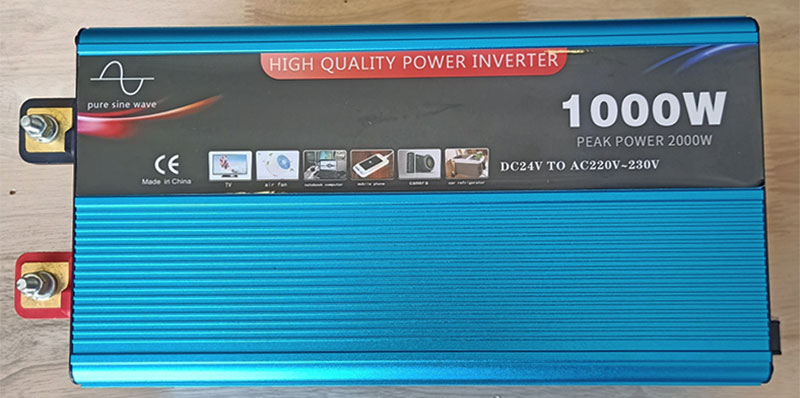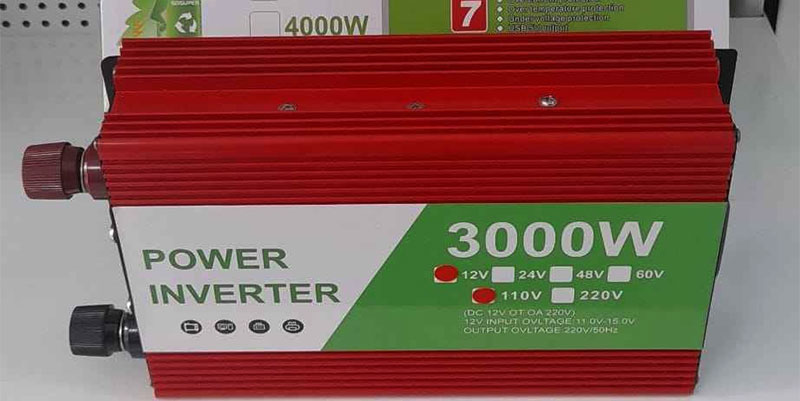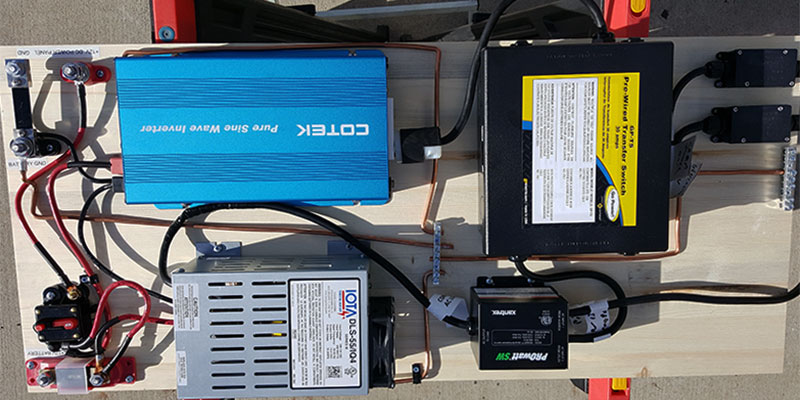An inverter converts the direct current (DC) power stored in your car’s battery into alternating current (AC). You can use an inverter to charge or power other devices while you are on the road. As a result, they have become extremely useful for people with cars and RVs who need to power items such as televisions and computers outside of their homes. If you’re considering buying an inverter, one important distinction is between 12-volt and 24-volt models: this guide will explain what these numbers mean and how they affect performance.
Inverters are devices that convert battery power to AC (alternating current) power. The two types of inverters available on the market today are 12 volt and 24-volt inverters. They look very similar, but they function differently in your car or RV when you use them as a backup generator.
Does a 12 volt or 24-volt inverter make more sense for my situation?

One of the most important things you can do to prepare for a power outage is an inverter. But what’s the difference between 12 volt and 24-volt inverters? And how does this affect your choice in buying one? Keep reading as we discuss everything you need to know about these devices so that you can make the right decision for your needs. When it comes down to it, there are only two main differences between them. First, they require different kinds of batteries (and therefore different kinds of charging systems). Second, they produce different amounts of power at their outputs. Let’s take a look at these points in more detail now.
An inverter is a device that changes direct current (DC) power to alternating current (AC). When using an inverter with your RV, you have two options: 12 volt or 24 volts. While they are similar in function, there are some key differences between the two. Here’s what you need to know about both so you can choose the best one for your needs.
The first step when considering whether or not to buy a 12v vs. 24v inverter is understanding how these devices work and their primary functions. After this, it should be much easier to understand which type of inverter will work best for your specific needs and make the right purchase decision.
Pros and cons of 12 volts vs. 24-volt inverters

When it comes to choosing between a 12 volt and 24-volt inverter, there is no cut-and-dry answer. Instead, there are pros and cons of each system that you must consider to make the best decision for your needs.
This article will focus on the power inverters used in mobile applications such as RV’s (recreational vehicles) or boats where AC power is required from a DC source such as batteries or solar panels. For large commercial AC loads like air conditioners, refrigerators, microwaves, etc., this blog post may not be applicable since they require much more than 12 volts or 24 volts of AC.
When looking for an inverter, most people automatically assume that they need a 24-volt inverter. However, there are certain situations where a 12-volt inverter is more beneficial.
Murphy’s Law says that anything that can go wrong will go wrong, especially when you’re out camping or on vacation at the lake with friends. Therefore, when running electrical appliances off of generators, it’s important to have some sort of backup power system to keep all electronic devices charged up and working correctly. Inverters are one way to create this backup power source by converting DC (battery) power into AC.

